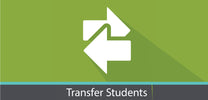1
Institutional responses to COVID continue to dominate the higher education headlines this week. The FDA announced on Monday that the Pfizer COVID vaccine has obtained full approval. In response, additional colleges and universities, such as the University of Louisiana System, will now require vaccination of their students, staff and faculty. The full approval also gives colleges more leeway to add mandates in states that banned schools from requiring vaccines distributed under the FDA's Emergency Use Authorization. As students return to campus for in-person learning, they are in support of vaccine mandates and masking according to surveys done by TimelyMD. This week Rice University and the County College of Morris announced they are shifting learning online for the first weeks of the semester.
2
Helping Students Start Their Second Year
Colleges and universities are recognizing that their sophomore students have missed out on a typical on-campus college experience and are providing unique orientation programming to help their sophomores acclimate to the institution. Orientation efforts at institutions like Washington University and Franklin & Marshall are geared towards ensuring sophomores “fill in information gaps related to academic resources and campus life, and help them build community.” Stanford University and Loyola University New Orleans created weekly sophomore newsletters to inform students about campus resources and to address critical issues like sophomore slump.
|
Listen to our recent Friday 5 Live episode to hear college students from across the United States share their hopes and concerns for the fall 2021 semester. |
3
The Continuing COVID Impact on Student Mental Health
This week the Chronicle of Higher Education examines research around students’ mental health challenges. A key takeaway: student mental health is not a monolith. Researchers think students appear to use the term “mental health” to describe general distress. There has been concern that students are not seeking mental health services, but this new research suggests students might need forms of support like flexibility in the classroom versus clinical treatment. Students seeking help in college counseling centers reported academic distress in higher numbers this past academic year. Of note, students reported a lack of motivation, trouble concentrating in classes, and an inability to complete work. Institutions need to be aware of the many challenges facing students this year including burnout and academic uncertainty and ensure there are clear supports in place to provide help.|
This semester, many students will be returning to classrooms after 18 months of nontraditional coursework and test-taking. “They’re going to land on campus really out of practice with what would be typical academic standards and expectations.” Ben Locke, senior director of counseling and psychological services at Pennsylvania State University
|
4
College Workers Face Burnout As Institutions “Return to Normal”
In conjunction with its piece on student mental health needs, the Chronicle this week examines the challenges staff and faculty are facing this academic year. Higher education lost 660,000 jobs at the height of the pandemic, and while nearly a third of those positions have been filled, college employees are stretched to cover the work left by unfilled or eliminated positions. Staff and faculty are also reporting high levels of exhaustion and burnout as they move into this school year causing many to leave higher education. A June survey of new student affairs professionals conducted by NASPA found that barely half of the respondents plan to continue working in the student affairs profession for the next five years. COVID may have lasting impacts on higher education employment trends.
|
Looking to learn more? These upcoming webinars may be of interest: Creating A Compassionate Classroom: How To Address Anxiety, Stress, Failure & Grief 9/15 |
5
First Year Students Struggled With Online Learning
Data released this week by the ACT suggests that first year college students struggled in their online learning experiences. Their research found that two-thirds of first-year students struggled with online learning last year. According to ACT CEO Janet Godwin, “the past academic year was perhaps the most challenging year in the lives of American college students, particularly students from low-income families and first-generation college students, who were more likely to have limited access to technology and the internet compared to their counterparts.” Students struggled with a lack of access to technology and the internet, a gap in resources, and limited prior experience with online learning.
August 27, 2021



Comments 0